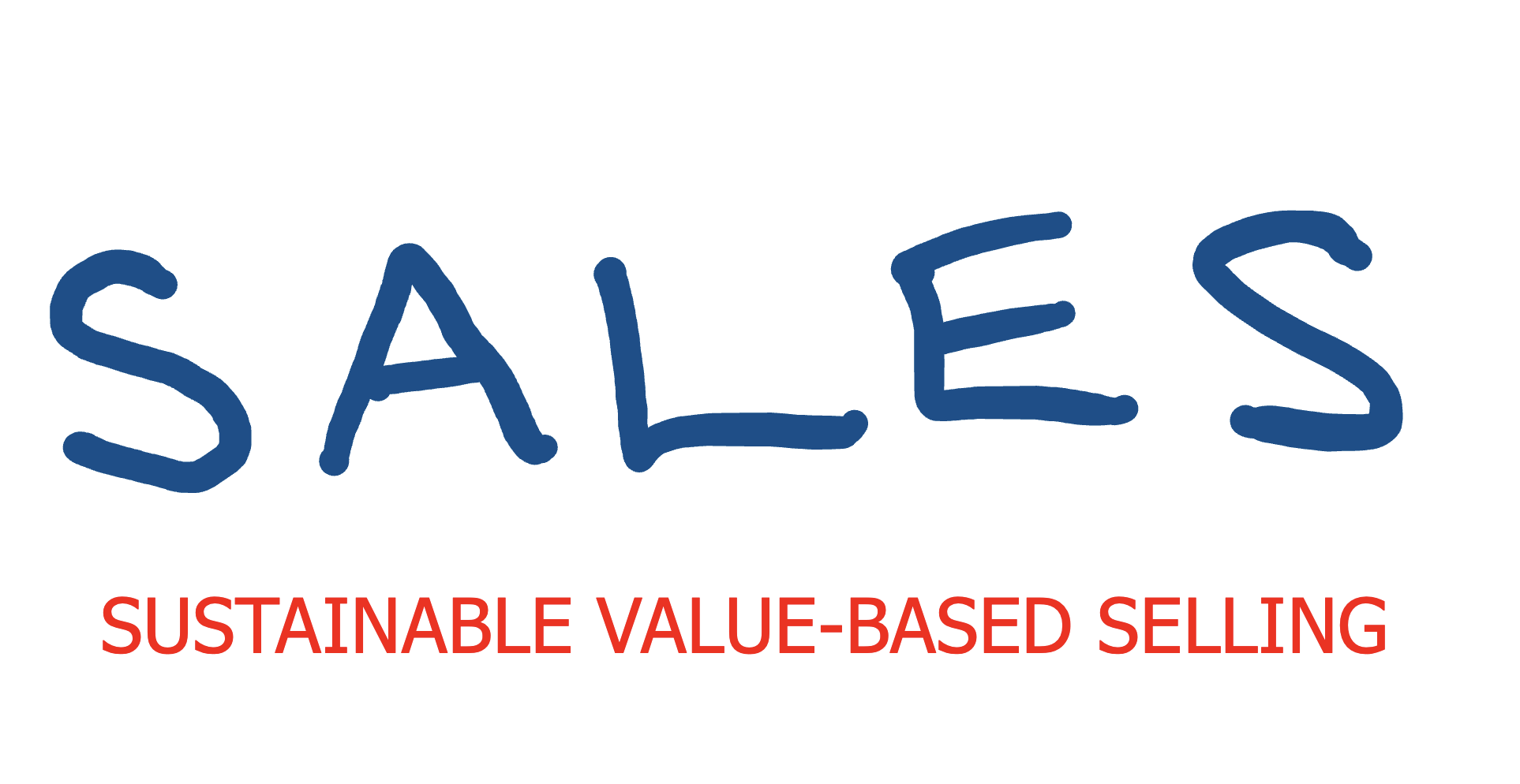
LEARNING OUTCOMES
The course learning objective is to provide the knowledge, processes and tools for planing and implementing proactive sales activities that build on identifying and implementing customer value creating relationships. The course teaches key value creation concepts and processes, activities and tools. The course positions selling as a device for change, with central themes including understanding customer goals, identifying the change required to reach the goals, and developing a jointly implemented solution to reach the goals. The impact of the change are evaluated at the organisational and societal levels from the sustainability perspective.Credits: 6
Schedule: 02.09.2024 - 18.10.2024
Teacher in charge (valid for whole curriculum period):
Teacher in charge (applies in this implementation): Pekka Töytäri, Hedon Blakaj
Contact information for the course (applies in this implementation):
CEFR level (valid for whole curriculum period):
Language of instruction and studies (applies in this implementation):
Teaching language: English. Languages of study attainment: Finnish, English
CONTENT, ASSESSMENT AND WORKLOAD
Content
valid for whole curriculum period:
Definition, explanation, and attributes of customer value, value innovation and sustainable value creation, buying and selling as structured processes, activities, encounters, and tools. Sales planning and evaluation.
applies in this implementation
The goal of the Sales: Sustainable value selling course is to teach, how selling proactively identifies, communicates, evaluates, and organizes innovative and sustainable opportunities to create value with customers. The course progresses though the following “storyline” from understanding the role of selling in supporting customers quest for improved business performance to detailed understanding of proactive value selling process, tasks and tools to finally some thoughts on sustainability in selling.
The course includes 7 learning modules. Modules may include few short thematic videos and include readings on key topics. Learning is evaluated by quizzes, which are available on a limited time once started.
QUEST FOR BUSINESS PERFORMANCE
Companies continuously change to improve their business performance by enhancing business processes by new knowledge and technology. Improvement is seldom possible alone, but instead requires help from others. Companies reach out for supplier companies to buy products and services to implement changes.
Module 1: Customer pressure to change
INFLUENCING WITH VALUE
Instead of waiting for customers to contact them, ambitious suppliers study their customers industry and processes to discover opportunities to improve their customers business performance. Progressive suppliers study the changes in technology, environmental demands, and consumer preferences, and apply the knowledge to innovate improvement opportunities. If successful, suppliers desing, communicate, adapt, quantify, and price the value propositions to create a pressure to change.
Module 2: Influencing with value
CUSTOMER BUYING PROCESS
Both customers' own search and supplier innovations create customer pressure to change. If the pressure to change is sufficiently severe, a solution process is kicked-off to design and implement a solution to the pressure to change together with required suppliers. The buying and selling functions work closely together to develop, agree and organize joint value creation that help customers to reach their business goals.
Module 3: The four steps of buying
FOUR ALTERNATIVE SALES APPROACHES
Buying and selling may engage at any point in the customer change and buying process. There are generally four alternatives. The proactive selling initiates customer change by creating a pressure to change. Often sellers cannot initiate a buying process, but instead need to wait for the customer to initiate a change. This solution selling that works with customer to design and implement a solution to an existing need. Often customer design a solution without help from suppliers, and reach out to potential suppliers with requests to offer. This is specification-based selling. Finally, the customer may be able to find, choose and pay products and services with little help from a seller. This is customer service.
Module 4: The four different sales approaches
PROACTIVE VALUE SELLING
We learn the proactive selling in detail. The proactive selling is the most demanding, but quickly growing and very impactful sales approach. There are five stages, four categories of sales tasks, and a large number of tools and templates to guide implementing the sales tasks. We look specifically an important early stage buyer-seller meeting, the exploration meeting, which determine whether there is a continued interest in moving on, and learn to to evaluate and plan a sales opportunity.
Module 5: The proactive value selling
SALES SKILLS
Successful implementation of the sales tasks requires sales skills. There are four categories of sales skills. A successful sales person knows customer business and process, own offering, communicates credibly and convincingly, and applies questions and other sales tools skilfully.
Module 6: Elements of personal selling skills: Building trust, influencing with questions, the psychology of influence, getting commitment, and sales opportunity management
SUSTAINABILITY IN SELLING
There are three perspectives for evaluating sales performance. The traditional view is to only measure seller’s success. I name this as transactional selling. The value selling expands the scope to measure value for the customer as well. The third perspective extends the evolution perspective to include the environment and society, within which the buyer and seller operate.
Module 7: Sustainability in selling
TO WHOM
To anyone interested in ethical, sustainable, and value creating business-to-business selling
Assessment Methods and Criteria
valid for whole curriculum period:
The course grading builds on online assignments in the learning environment.
Workload
valid for whole curriculum period:
The course learning is based on self study of reading materials (such as articles, book chapters and white papers) and videos.
DETAILS
Study Material
valid for whole curriculum period:
Reading materials (such as articles, book chapters and white papers) and videos.
Substitutes for Courses
valid for whole curriculum period:
Prerequisites
valid for whole curriculum period:
FURTHER INFORMATION
Further Information
valid for whole curriculum period:
Teaching Language: English
Teaching Period: 2024-2025 Autumn I - Summer
2025-2026 Autumn I - Summer
